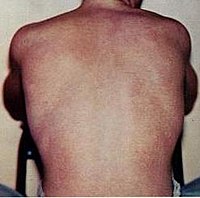
Modelling Wolbachia infection in a sex-structured mosquito population carrying West Nile virus
Sign Up to like & getrecommendations! Published in 2017 at "Journal of Mathematical Biology"
DOI: 10.1007/s00285-017-1096-7
Abstract: Wolbachia is possibly the most studied reproductive parasite of arthropod species. It appears to be a promising candidate for biocontrol of some mosquito borne diseases. We begin by developing a sex-structured model for a Wolbachia… read more here.
Keywords: wolbachia infection; wolbachia infected; infection; mosquito population ... See more keywords

Infections of Wolbachia may destabilize mosquito population dynamics.
Sign Up to like & getrecommendations! Published in 2017 at "Journal of theoretical biology"
DOI: 10.1016/j.jtbi.2017.05.016
Abstract: Recent efforts in controlling mosquito-borne diseases focus on biocontrol strategies that incapacitate pathogens inside mosquitoes by altering the mosquito's microbiome. A case in point is the introduction of Wolbachia into natural mosquito populations in order… read more here.
Keywords: wolbachia may; mosquito population; population dynamics; infections wolbachia ... See more keywords

Multiscale modelling the effects of CI genetic evolution in mosquito population on the control of dengue fever
Sign Up to like & getrecommendations! Published in 2017 at "Scientific Reports"
DOI: 10.1038/s41598-017-13896-x
Abstract: Endosymbiotic Wolbachia bacteria are widely applied for the control of dengue fever by manipulating the reproductive mechanism of mosquitoes, including maternal inheritance and cytoplasmic incompatibility (CI). CI means that the offsprings from the matings between… read more here.
Keywords: control dengue; population; dengue fever; mosquito population ... See more keywords

Modeling and analyzing the impact of temperature and rainfall on mosquito population dynamics over Kwazulu-Natal, South Africa
Sign Up to like & getrecommendations! Published in 2017 at "International Journal of Biomathematics"
DOI: 10.1142/s1793524517500553
Abstract: Malaria parasites are strongly dependent on Anopheles mosquitoes for transmission; for this reason, mosquito population dynamics are a crucial determinant of malaria risk. However, temperature and rainfall play a significant role in both aquatic and… read more here.
Keywords: mosquito population; kwazulu natal; temperature rainfall; population dynamics ... See more keywords